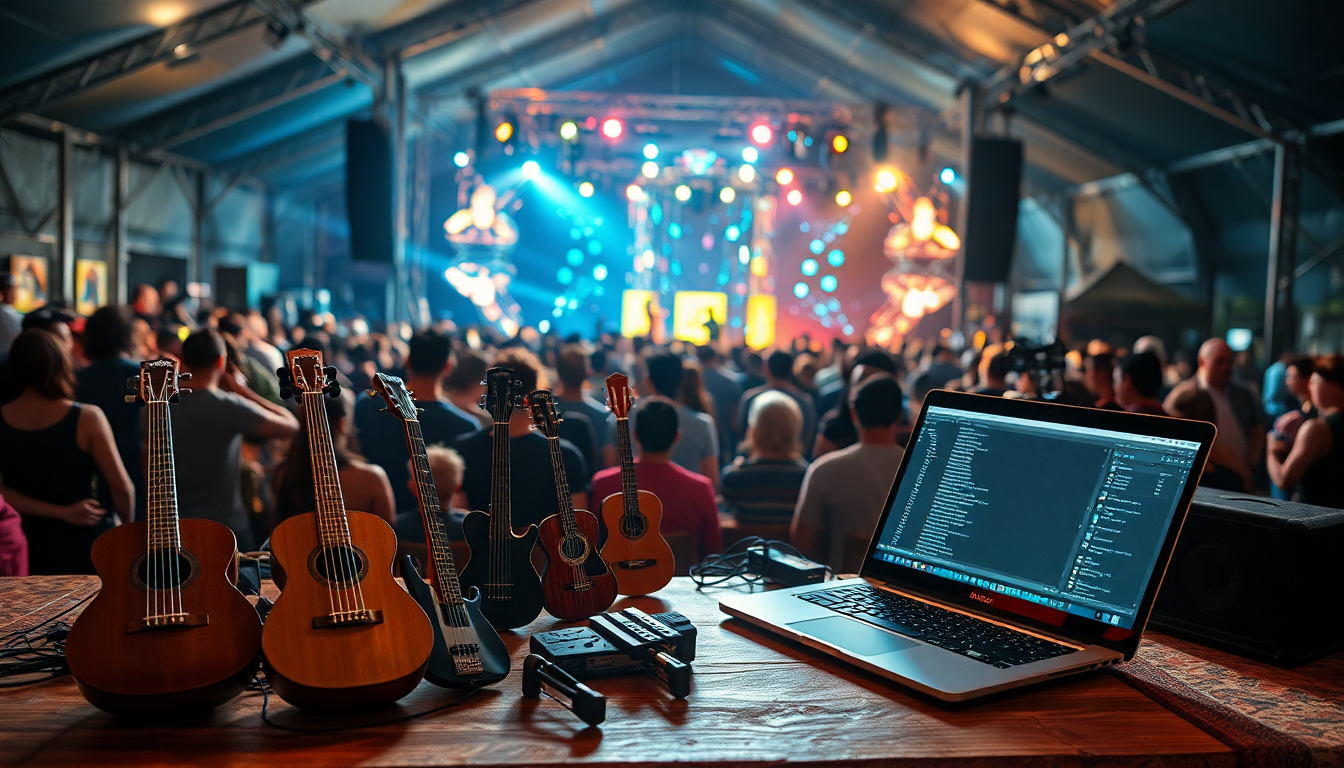Table of Contents
The evolution of technology is continuously reshaping various industries, and the music sector is no exception. Just recently, the Golden Melody Festival in Taipei highlighted a fascinating trend: the rise of AI-generated artists. This isn’t just some futuristic fantasy; it’s a reality that’s gaining momentum, presenting both opportunities and challenges for the music industry as it navigates this uncharted territory.
AI-generated artists: a new paradigm
As the music landscape transforms, the introduction of AI-generated artists represents a pivotal shift. Take Mila, for instance—a virtual singer crafted for the metaverse. Her existence perfectly illustrates the intersection of technology and artistry. At the festival, industry experts delved into Mila’s development, which combines AI-driven personality, real-time interaction, and cultural elements to create a virtual persona that truly resonates with audiences.
Mila is more than just a digital avatar; she’s part of a complex ecosystem that encompasses sound engineering, text-to-speech technology, and advanced AI computing. This multifaceted approach allows her to engage fans on a deeper level. Industry leaders are quick to point out that the emotional connection between virtual idols and their fans can be just as strong—if not stronger—than the bonds formed with traditional artists. This connection transcends language and geography, letting fans forge relationships with these synthetic stars in ways that feel genuine.
The concept of *co-creative companionship* emerges from Mila’s design, enabling fans to interact with her continuously. This level of engagement can foster emotional ties that traditional artists might struggle to match. However, the conversation surrounding AI-generated personalities also raises crucial questions about *authenticity* and the *ethical implications* of music production. Can something created by algorithms truly resonate on a human level?
Creative and ethical considerations in AI music
While the potential of AI artists is undeniably intriguing, the creative and ethical dilemmas they present deserve careful consideration. The challenge lies in crafting virtual personas that feel authentic and unique, ensuring audiences see them as more than just sophisticated algorithms. As music producers navigate this landscape, they must strike a balance between technical innovation and the emotional depth that makes music so powerful.
It’s essential that AI artists respect cultural and ethical boundaries. From their behavior to their visual identity, every aspect of these virtual entities requires a thoughtful design and review process. Producers face the responsibility of maintaining originality and emotional authenticity, all while scrutinizing the ethical implications that come with this new frontier of music creation. This commitment reflects a broader dedication to producing art that resonates deeply with audiences.
As AI technology becomes increasingly woven into music production, it’s vital to remember that the heart of music lies in its ability to connect with people. The collaboration between human creativity and AI opens up exciting possibilities for the future, but we must recognize that algorithms alone cannot replicate the emotional resonance that defines impactful music.
The future landscape of AI in music
Looking ahead, the integration of AI in music is set to expand even further. We can expect to see a rise in AI-assisted creation and production processes, potentially reshaping how music is made and consumed. While AI-generated artists may carve out their own paths, the foundation of successful music will always hinge on the emotional connections it fosters with listeners.
Industry leaders agree that AI should be seen as a collaborator rather than a replacement for human artists. As AI technology continues to evolve, it’s crucial to embrace its potential while prioritizing emotional authenticity. The future of music may very well be a blend of AI-driven innovation and the irreplaceable human touch that has always defined this art form.
In conclusion, the rise of AI-generated artists marks a transformative moment in the music industry. As these virtual entities establish their presence, the ongoing dialogue about their implications will undoubtedly shape the future of creativity and the evolving relationships between artists and fans. Are we ready to embrace this new wave of musical talent?


